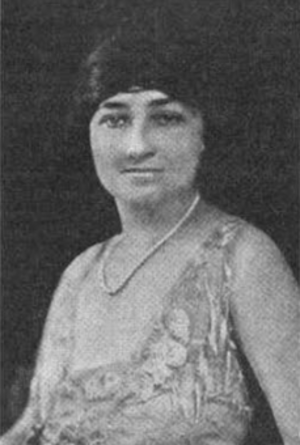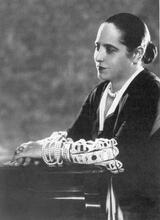Helen Rosen Woodward
Helen Rosen Woodward is best known for her contribution to the world of advertising and is generally believed to be the first female account executive in the United States. She had a long association with women’s magazines, including Pictorial Review, Woman’s Day, and McCall’s, and later wrote a lively social history titled The Lady Persuaders about how women’s magazines transformed women’s place in American society. Woodward was also committed to social justice; she joined the Women’s Trade Union League and became active in encouraging the formation of labor unions among female workers. She wrote books both alone and in collaboration with other authors, including a two-part memoir with a Russian ex-soldier about his experiences in the Bolshevik Revolution.
Article
Helen Rosen Woodward is best known for her contribution to the world of advertising and is generally believed to be the first female account executive in the United States. Born in New York City to Polish and German immigrants Louis and Frederika (Sachs) Rosen, she attended the Girls’ Latin School in Boston and in 1913 married William E. Woodward, a non-Jewish writer and historian. She was largely self-taught, read voraciously, was excited by new ideas, and was imbued with a bristling patriotism.
Woodward recounts the challenges she faced as a young working woman in a variety of businesses in her forthright autobiography Through Many Windows. Her keen observations about office life in the early part of the century make fascinating reading. She explains that “girls in offices” in this period were nearly all opposed to suffrage “except for an occasional Jewish girl.” Gradually, women began to change as their self-respect and self-reliance grew.
In 1907, Woodward began her long career in advertising and her long association with women’s magazines, including Pictorial Review, Woman’s Day, and McCall’s. She later wrote a lively social history titled The Lady Persuaders about how women’s magazines transformed women’s place in American society.
After she met her husband, Woodward realized that she had two ambitions: “To write novels and do something for the good of mankind.” She proceeded to join the Women’s Trade Union League and became active in encouraging the formation of labor unions among female workers. In her later years, Woodward reflected on her experience as a Jewish woman in business and dismissed the notion that her Jewishness had anything to do with how she was treated. “I have certain talents they want and they like me as a person,” she explained. Indeed, her Jewishness figures little in her autobiography. She writes that she never went to any religious service and that the exclusively Jewish social life of her brother and sister held no interest for her whatsoever.
Woodward left advertising after twenty years, because she wanted to travel with her husband and write. During this time, she wrote books both alone and in collaboration with other authors, including a two-part memoir with a Russian ex-soldier about his experiences in the Bolshevik Revolution. She was a passionate woman and a prolific author who was committed to social justice and delighted by life’s possibilities.
Helen Rosen Woodward died in New York City in 1960.
Applegate, Ed, ed. Ad Men and Women: A Biographical Dictionary of Advertising. Westport: Greenwood Press, 1994.
Burke, W.J., and Will Howe. American Authors and Books, 1640 to the Present Day. 3rd ed. New York: Crown, 1972.
Contemporary Authors: A Bio-Bibliographical Guide to Current Writers in Fiction, General Non-Fiction, Poetry, Journalism, Drama, Motion Pictures, Television and Other Fields. Detroit: Gale Research Co., 1969.
UJE; WWIAJ (1938).
WWWIA 7.




